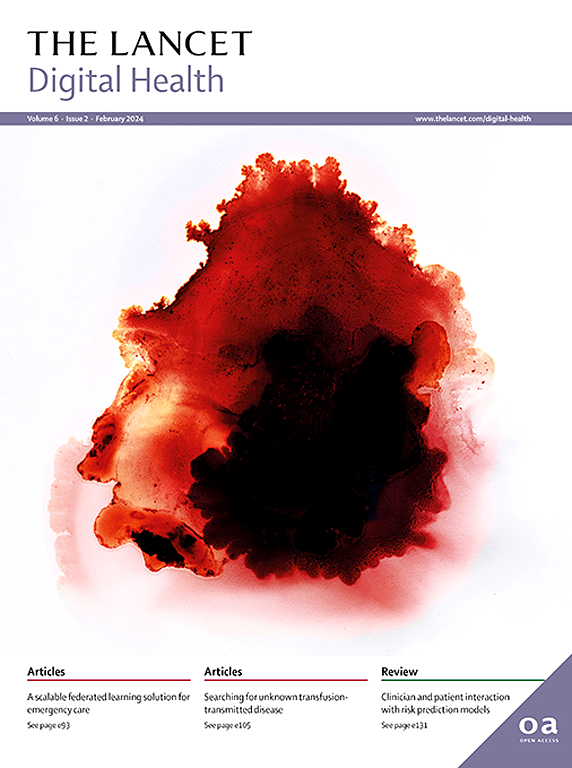Addressing the challenges of integrating digital health technologies to measure patient-centred outcomes in clinical registries
IF 23.8
1区 医学
Q1 MEDICAL INFORMATICS
引用次数: 0
Abstract
Longitudinal patient registries generate important evidence for advancing clinical care and the regulatory evaluation of health-care products. Most national registries rely on data collected as part of routine clinical encounters, an approach that does not capture real-world, patient-centred outcomes, such as physical activity, fatigue, ability to do daily tasks, and other indicators of quality of life. Digital health technologies that obtain such real-world data could greatly enhance patient registries but unresolved challenges have so far prevented their broad adoption. Based on our experience implementing digital health technologies in registries and observational studies, we propose potential solutions to three practical challenges we have repeatedly encountered: determining what to measure digitally, selecting the appropriate device, and ensuring representativeness and engagement over time. We describe the example of a hypothetical patient registry for valvular heart disease, a condition for which there is substantial variation in treatment selection and postintervention outcomes, and for which patient-centred outcome data are urgently needed to inform clinical care guidelines and health-service commissioning.
应对整合数字卫生技术以衡量临床登记中以患者为中心的结果的挑战。
纵向患者登记为推进临床护理和保健产品的监管评估提供了重要证据。大多数国家登记依赖于作为常规临床就诊的一部分收集的数据,这种方法不能捕捉现实世界中以患者为中心的结果,如身体活动、疲劳、日常工作能力和其他生活质量指标。获取此类真实数据的数字卫生技术可以大大加强患者登记,但迄今为止尚未解决的挑战阻碍了它们的广泛采用。根据我们在注册表和观察性研究中实施数字卫生技术的经验,我们针对我们反复遇到的三个实际挑战提出了潜在的解决方案:确定数字测量的内容,选择合适的设备,并确保代表性和参与度。我们描述了一个假设的瓣膜性心脏病患者登记的例子,这种疾病在治疗选择和干预后结果方面存在很大差异,迫切需要以患者为中心的结果数据来为临床护理指南和卫生服务委托提供信息。
本文章由计算机程序翻译,如有差异,请以英文原文为准。
求助全文
约1分钟内获得全文
求助全文
来源期刊

Lancet Digital Health
Multiple-
CiteScore
41.20
自引率
1.60%
发文量
232
审稿时长
13 weeks
期刊介绍:
The Lancet Digital Health publishes important, innovative, and practice-changing research on any topic connected with digital technology in clinical medicine, public health, and global health.
The journal’s open access content crosses subject boundaries, building bridges between health professionals and researchers.By bringing together the most important advances in this multidisciplinary field,The Lancet Digital Health is the most prominent publishing venue in digital health.
We publish a range of content types including Articles,Review, Comment, and Correspondence, contributing to promoting digital technologies in health practice worldwide.
 求助内容:
求助内容: 应助结果提醒方式:
应助结果提醒方式:


